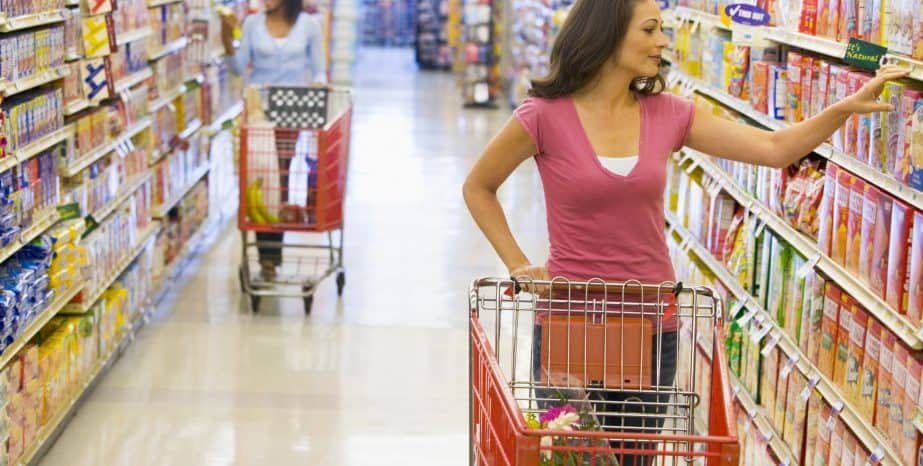
What You Should Know About Grocery Store Falls in California
During the pandemic, grocery stores were some of the few retail establishments which were open in Southern California. Slip-and-fall injury claims account for almost two-thirds of grocery store liability insurance claims. So, these incidents are all too common. As outlined below, liability issues are normally straightforward in these cases. Identifying the responsible party is not always as easy.
Falls often cause severe physical and emotional injuries, especially for older adults. Physically, many of these victims have pre-existing conditions. As a result, a fall that might cause a bone bruise in most cases causes a shattered femur. Emotionally, many older fall victims are so afraid of a repeat fall that they essentially become prisoners in their own homes.
Because of the nature of these injuries, a Los Angeles personal injury attorney might be able to obtain substantial compensation for victims. This compensation usually includes money for economic losses, such as medical bills, and noneconomic losses, such as pain and suffering.
Determining the Responsible Party
Many grocery store falls occur outside. That’s especially common in what passes for winter in Los Angeles. Early darkness limits visibility, and frequent rains make sidewalks slippery, especially if a small puddle develops.
Most grocery stores in Southern California are retail anchors. A grocery store is the centerpiece of a mini-mall, which often includes restaurants and other smaller retail establishments. Generally, the grocery store is responsible for the sidewalk and parking lot attached to the premises. The landlord is usually responsible for outlying common areas, such as the large parking lot area or a small green area. Specific responsibility varies, according to the terms of the lease.
Attention to detail is very important. Suing the wrong party, such as naming the grocery store as a defendant when the landlord was responsible for the area, does not torpedo your claim for damages. But it often does lead to a costly delay.
Theoretical Liability
Most negligence claims, including slip-and-fall claims, begin with a legal duty. Many states use a rather confusing common law classification system to assign different duties in different situations. But California is different. Landowners have a duty to protect visitors’ safety. The precise extent of this duty depends on several factors, such as:
- Property location,
- Probability of injury,
- Likely severity of injury,
- Difficulty, if any, of preventing harm, and
- Defendant’s control over the premises.
All these factors point toward a high duty of care in grocery store fall claims. Typically, these owners have a duty of reasonable care. They must take steps to ensure the property is safe and frequently inspect it to ensure this standard is maintained. That’s especially true if the slip-and-fall occurred inside the store, and the store’s franchise owner is the defendant.
A lesser duty of care usually applies if the corporate entity is the defendant or the fall happened outside near the parking lot. Arguably, the defendant has less control over the premises in these situations.
Practical Liability
Regardless of duty, victim/plaintiffs must establish knowledge of the hazardous condition. Usually, this proof involves circumstantial evidence. Most courts evaluate circumstantial evidence according to the time-notice rule, which comes from Anjou v. Boston Elevated Railway Company, a classic 1911 case.
While she was at the train station, Ms. Anjou slipped and fell on a banana peel. The peel, according to witnesses, looked as if it had been “tramped over a good deal,” since it was “flattened down, and black in color.” The landowner denied responsibility for her fall, claiming it did not know about the wayward banana peel. The court ruled in favor of Ms. Anjou, based largely upon the condition of the peel. Since it was black and gritty, it had probably been on the floor for some time, and therefore an employee should have picked it up. However, if the peel had been fresh and yellow, it had probably just fallen, so no constructive knowledge (should have known) would have attached.
Object-related hazards, such as banana peels and kelp pieces, are especially common in grocery stores. So are hazards like wet spots on floors. Direct evidence is also available on this point. Such “smoking guns” include things like restroom cleaning reports and “cleanup on aisle three” announcements. Attorneys usually uncover direct evidence of actual knowledge during a lawsuit’s discovery process. Slip-and-falls often cause serious injuries.
For a free consultation with an experienced Los Angeles personal injury attorney, contact the Law Office of Eslamboly Hakim. You have a limited amount of time to act.
Image Source: Storyblocks
Sharona Hakim
Sharona Eslamboly Hakim, Esq. is a successful personal injury attorney and the principal of the Law Offices of Eslamboly Hakim firm in Beverly Hills, California.








